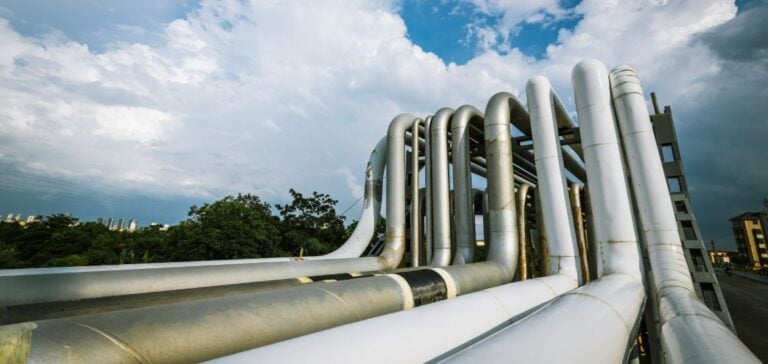Hartshead Resources, an Australian energy sector player, announced on November 27 that it is considering an alternative route for transporting gas from its Anning and Somerville field development project in the North Sea. This decision follows fiscal clarifications provided by the UK government in its October budget.
Hartshead CEO Chris Lewis emphasized the importance of these new fiscal conditions in accelerating the project. “The UK government’s recent budget announcement has provided the clarity our industry has been waiting for since February,” he stated. This now allows the company to pursue a project described as robust and high-value in this new context.
New Development Plan
The initial project plan includes drilling six production wells spread across two platforms at Anning and Somerville. These facilities will be connected via subsea pipelines to transport the gas to the network. At full capacity, the project could produce up to 4 million cubic meters per day, significantly contributing to the UK’s energy supply.
However, recent changes in asset management have opened up a previously inaccessible possibility for gas transportation. Hartshead is currently evaluating this option to determine whether it presents advantages over the initially planned solution. According to the company, this reassessment is part of a comprehensive review of the fields’ development plan.
Gas Price Support
Moreover, high gas prices observed in the UK over recent months enhance the project’s economic attractiveness. The company noted that forecasts for strong winter demand supported the financial viability of ongoing developments. Market data confirms a consistent price increase, with a rate of 117.39 pence per therm on November 26, representing a 24% rise since early October.
Resources and Prospects
In addition to these developments, Hartshead’s net offshore resources have grown to 1.5 trillion cubic feet thanks to new blocks acquired during the UK’s 33rd licensing round. These assets include fields that have been explored but remain undeveloped, as well as prospective resources.
The company plans to submit a revised development plan to the relevant authorities in December, a key step before moving to the execution phase. Hartshead had previously reached an agreement with Shell in 2022 for the treatment and transport of gas via the Leman Alpha platform and the Bacton terminal, a solution that remains under consideration alongside the new route.






















